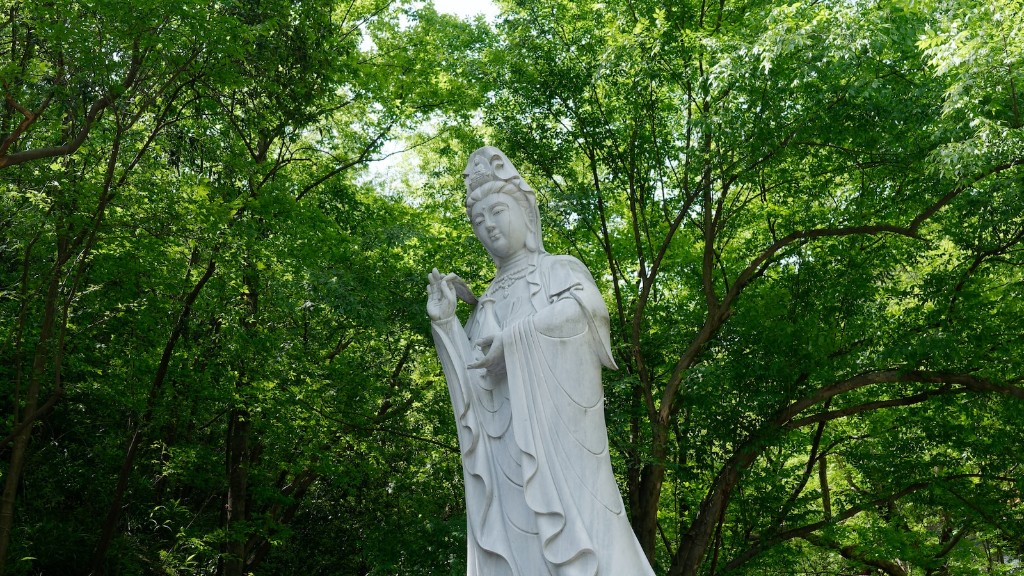Buddhism and Christianity are two of the world’s largest religions. Buddhists follow the teachings of Siddhartha Gautama, who is known as the Buddha, while Christians adhere to the teachings of Jesus Christ. There are many differences between these two religions, including their beliefs about the nature of reality and the path to salvation.
Buddhism and Christianity are different in a few key ways. For one, Buddhism began in Asia, while Christianity began in the Middle East. Additionally, Buddhists focus on achieving enlightenment through personal spiritual development and following the four Noble Truths, while Christians believe in salvation through faith in Jesus Christ. Christians also believe in the Bible as the authoritative word of God, while Buddhists do not consider any particular text to be infallible. Finally, Buddhists typically do not proselytize or evangelize, while Christians are often encouraged to share their faith with others.
What beliefs do Buddhism and Christianity have in common?
Morality is an important aspect of both Christianity and Buddhism. Both religions teach that it is important to behave with decency and respect. This is evident in the way both religions emphasize the importance of living a good life and helping others. In addition, both religions teach that it is important to follow certain guidelines in order to live a moral life. For example, Christians are taught to follow the Ten Commandments, while Buddhists are taught to follow the Five Precepts. By following these guidelines, both Christians and Buddhists can live moral lives that are respectful of others.
The central iconic imagery of the two traditions underscore the difference in their belief structure. The peaceful death of Gautama Buddha at an old age is contrasted with the harsh image of the crucifixion of Jesus as a willing sacrifice for the atonement for the sins of humanity.
How does Christianity differ from Buddhism afterlife
Karma is a central concept in Buddhism. It is the force that drives the cycle of death and rebirth. Buddhists believe that good deeds lead to good karma and bad deeds lead to bad karma. The goal of Buddhism is to break the cycle of death and rebirth and achieve nirvana, which is a state of complete peace and freedom. Christianity also emphasizes doing good deeds in the present life and spending eternity with God in heaven after death. However, the concept of karma is not central to Christianity.
Siddhartha Gautama was the first person to reach the state of enlightenment and was known as the Buddha. Buddhists do not believe in any kind of deity or god, although there are supernatural figures who can help or hinder people on the path towards enlightenment.
Do Buddhists believe in heaven?
In Buddhism, the concept of punishment or reward does not exist. There is no divine being who decides who goes to hell or heaven. There is only the illusory results of our thoughts, words and deeds, which we call karma.
There are some major differences between the Christian and Buddhist beliefs. Christians preach of one God, creation and salvation, while Buddhists believe in reincarnation, enlightenment and nirvana. “The beliefs aren’t compatible at all,” said Stephen Lahey, an Episcopalian minister and religious studies professor at the University of Nebraska-Lincoln.
What are the 3 main beliefs of Buddhism?
Buddhism is a religion that is based on the teachings of Siddhartha Gautama. The main principles of this belief system are karma, rebirth, and impermanence. Karma is the belief that our actions have consequences, both in this life and in future lives. rebirth is the belief that we are reborn into different forms after we die, and impermanence is the belief that everything is temporary and nothing lasts forever.
I agree that Buddhism is compatible with science and reason. I think it is a kind of science, but not in the way that some people think. It is a science of the mind, and a religion, but it is not a traditional science like physics or biology.
What do Buddhist think about Jesus
There are some high level Buddhists who have drawn analogies between Jesus and Buddhism. For example, in 2001 the Dalai Lama stated that “Jesus Christ also lived previous lives”, and added that “So, you see, he reached a high state, either as a Bodhisattva, or an enlightened person, through Buddhist practice or something like that”. Thich
The Buddhist teachings on devas (sometimes translated as ‘gods’) and other Buddhist deities, heavens, and rebirths in its doctrine of saṃsāra, or cyclical rebirth, state that there are divine beings called devas. Other Buddhist doctrines and practices also recognize the existence of these beings and places, and often include them in their teachings and practices.
Do Buddhists believe in afterlife?
Buddhism teaches that life and death are a continuum, with consciousness (the spirit) continuing after death and potentially being reborn. Death can be an opportunity for liberation from the cycle of life, death and rebirth.
Buddhism is a religion focused on liberation from suffering. It is not a theistic religion, as the Buddha himself rejected the idea of a creator god. In fact, Buddhist philosophers have argued that belief in an eternal god is nothing but a distraction for humans seeking enlightenment.
Do Buddhists celebrate Christmas
It is a common misconception that Buddhists do not celebrate holidays, but this is simply not true! Many Buddhists, especially among the Asian American community, do celebrate holidays such as Christmas. In fact, three-quarters of Asian American Buddhists celebrate Christmas.
On December 8th, some Buddhists also observe Bodhi Day, which marks the Buddha’s enlightenment. So, contrary to popular belief, Buddhists do participate in the holiday season!
While Buddhists believe in reincarnation, they also see cremation as the preferred choice when a loved one dies. The physical body is seen as holding little significance to the Buddhist faith – it is merely a vessel for holding the soul. Buddhists also believe in organ donation as it is seen as a good deed.
Is Buddhism a faith or religion?
Buddhism is a unique faith that teaches people to live in the present moment and to let go of attachments. Buddha was a Indian prince who gave up his life of luxury to search for truth. After years of study and contemplation, he realized that the key to happiness is living in the present and letting go of desires.
Buddhism has since spread throughout the world, and its followers have found solace and peace in its teachings. If you are interested in learning more about this fascinating religion, there are many resources available online and in libraries.
Buddha’s 7 Rules of Happiness are:
1. Clear Viewpoint: Don’t just believe anything just because you saw it or you heard it. Be questioning and open-minded.
2. Values: Be clear about your values and what is important to you. This will help you stay on the path of happiness.
3. Words that Inspire: Choose your words carefully. They should inspire you and others to take positive actions.
4. Actions with Impact: Make sure your actions have a positive impact on yourself and others.
5. Be Mindful: Be aware of your thoughts, feelings, and actions. This will help you stay on the path of happiness.
6. Concentrate Right: Focus on what is important to you. This will help you stay on the path of happiness.
7. Be grateful: Be thankful for what you have. This will help you stay on the path of happiness.
Final Words
Buddhism and Christianity are different in a number of ways. For one, Christianity is centered around the belief in one God, while Buddhism does not necessarily focus on any one god. Additionally, Christianity teaches that there is an afterlife and a heaven or hell, while Buddhism holds that reincarnation occurs after death. Finally, Christians believe in the concept of original sin, while Buddhists do not.
Buddhism and Christianity are two of the world’s major religions. Both share many commonalities, such as a belief in ethical conduct, compassion, and reincarnation. However, they also differ in a number of ways. For example, Buddhism emphasizes the Four Noble Truths and the Eightfold Path, while Christianity focuses on the teachings of Jesus Christ and the Bible. Additionally, Buddhists do not believe in a personal god, while Christians do. Ultimately, Buddhism and Christianity are two distinct religion

